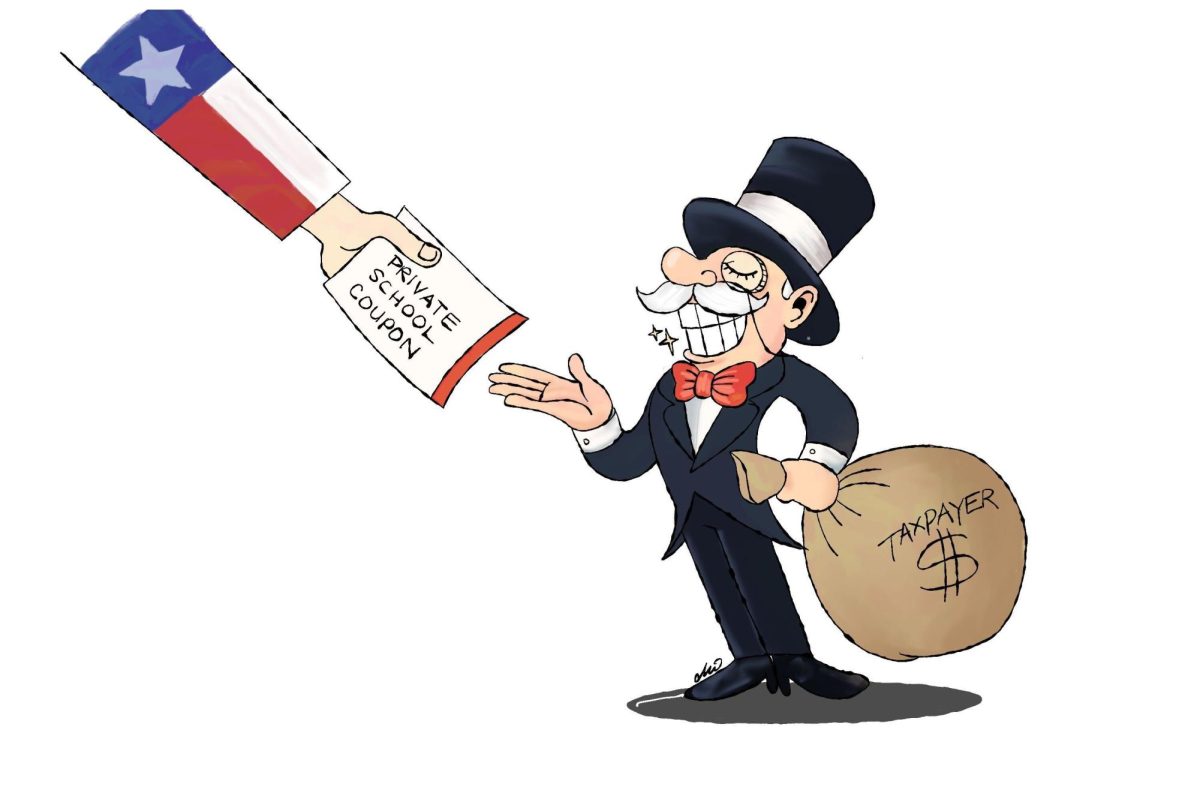Recently, Texas A&M University has been seized in controversy over its new faculty hiring program, ACES Plus. The university is being sued, and what makes it worse is the lawsuit is being brought forth by a professor from the University of Texas, or UT (I will try and refrain from using the arguably better acronym.)
The ACES program is allocating two million dollars in financial incentives and benefits to new faculty hires from “underrepresented minority groups.”
According to the original university memo, ACES Plus is designed to increase the amount of minority faculty hires defined as “African Americans, Hispanic/Latino Americans, Native Americans, Alaskan Natives and Native Hawaiians.”
In other words, your tuition money is going to a program that rewards certain people with economic benefits only because of the racial category they happen to fall in.
On behalf of UT professor Richard Lowery, America First Legal is suing A&M on the grounds that the program is discriminatory.
The lawsuit claims “[A&M] discriminates on account of race and sex when hiring its faculty, giving discriminatory preferences to female or non-Asian minorities at the expense of white and Asian men.” Specifically, the lawsuit criticizes the policy of “affirmative action,” which they argue violates anti-discrimination laws Title VI and Title IX.
“History is being made today,” Stephen Miller, former advisor to President Donald Trump and president of America First Legal, said in a press release. “We must extract the poison of bigotry coursing deep through the leadership of Texas A&M and restore civil rights and equality for all. Our lawsuit will send tremors through our corrupt institutions of ‘higher learning.'”
The complaint filed by America First echoes the same somewhat strange sentiment, “These discriminatory, illegal and anti-meritocratic practices have been egged on by woke ideologues who populate the so-called diversity, equity and inclusion offices at public and private universities.”
“Extract the poisons of bigotry?” “Send tremors through our corrupt institutions?” “Woke ideologues?” You would expect to hear these phrases at a political rally, not from a legal team aiming to win in a court of law. However, I suppose in today’s world, the excesses of the culture war are bound to infect all aspects of life. Regardless of the ridiculous “own the libs” aspect of the case, the lawsuit will likely fail on its merits.
The main problem is that there is no evidence that Richard Lowery ever applied for a faculty position at A&M. Without being able to prove how the university’s hiring practices harm him, his “standing” to sue has a considerable chance of being rejected. This would mean that Lowery’s case would be dead on arrival before a judge could rule on its merits.
Moreover, there is court precedent shielding the practice of affirmative action in the realm of college admissions, such as Regents of the University of California v. Bakke, Grutter v. Bollinger and Fisher v. University of Texas. At the risk of gross oversimplification, these cases allow affirmative action as long as the university can prove there is a significant “state interest” in creating a diverse student body and the applicant’s race isn’t the only factor considered.
For Lowery’s lawsuit to prevail against A&M, he must first get over the hurdle of proving he has standing and then compete with a complicated,albeit flawed, array of Supreme Court precedents, which is no easy task.
Though the lawsuit will likely fail, I’m unwilling to let my beloved university off the hook. Let’s call it what it is — affirmative action is discrimination. Regardless of the pleasant-sounding words its supporters use in its defense, the result is always the same — certain racial groups getting treated differently than others.
Affirmative action should be illegal. It violates the plain language of Title VI of the Civil Rights Act of 1964, which says, “No person in the United States shall, on the ground of race, color, or national origin … be subjected to discrimination under any program or activity receiving federal financial assistance.”
That’s it. There is no “but” at the end of it. There is no provision stating that racial discrimination is sometimes justified. The meaning of the Civil Rights Act is clear — racial discrimination by a program that receives federal money will not be tolerated in the United States of America.
On Oct. 31, 2022, the Supreme Court is scheduled to consider two cases regarding race-based admittance practices by Harvard University and the University of North Carolina. If the court cares about adhering to the law, it should end the immoral practice of affirmative action. If that means uprooting previous court precedents, then so be it. It shouldn’t have been precedent in the first place.
If we truly desire a society that judges people by the content of their character instead of their racial background, then we should heed the simple advice of Supreme Court Chief Justice John Roberts, “The way to stop discrimination on the basis of race is to stop discriminating on the basis of race.” Equality before the law requires nothing less.
Ryan Lindner is a political science sophomore and opinion writer for The Battalion.
Opinion: Racism by another name
October 13, 2022
1
Donate to The Battalion
$2065
$5000
Contributed
Our Goal
Your donation will support the student journalists of Texas A&M University - College Station. Your contribution will allow us to purchase equipment and cover our annual website hosting costs, in addition to paying freelance staffers for their work, travel costs for coverage and more!
More to Discover
















